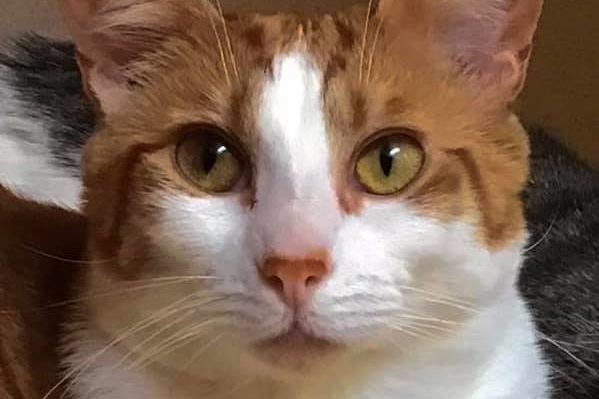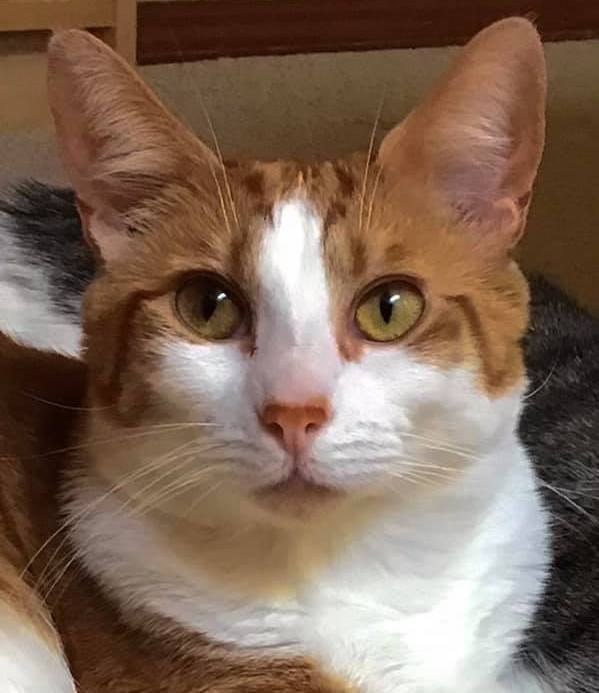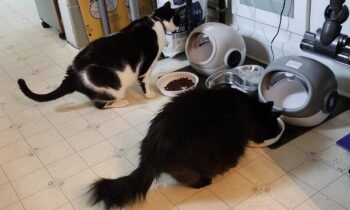
In the last few weeks, we’ve discussed the possibility that shelters and rescues might choose not to accept applicants of a certain age because they are “too old” to adopt a pet. We’re not enthusiastic about age limits on humans who wish to adopt, but we fully agree, as did our commenters, that a critical factor in pet adoptions for humans of any age is a plan’s being in place for when/if the human cannot care for the pet because of a temporary or permanent change in circumstances. We believe that every human with a pet should have a “support team” for back-up, regardless of the age of the human.
I encouraged pet professionals online to explain how their “support team” was formed and how it operates. Perhaps when you read their comments, you will see a back-up plan that might work for you. I asked:
“No matter your age, if you’ve made arrangements with a friend, relative, or neighbor to care for your pets if you’re not able—because of an emergency, health issues, or the need to travel without the pet/s—I’d like to hear about that arrangement, how it came about, and how it’s working for all of you.”
Donna-Leigh Rowley (Ontario) I have three different people helping me walk my dog because of back and knee problems. I am thankful for them all. I have been diagnosed with BPD and depression coupled with a bad back and knee. I used to take Shiloah out myself, but I ended up using a mobility scooter so walking him was difficult (he did not like the machine). I am fortunate enough to have a neighbor down the hall who has taken on the job of walking him for me. But I noticed that was not enough, so I found a walker online who would take him an hour per day to our huge local dog park where he can run and play and basically be a dog Monday through Friday. Shiloah was introduced to Anna and they got along fine. He is a Lab and he loves everyone. Since their walks together in the past year he has lost 21 pounds and is fit and healthy, including his raw diet. When I get upset (BPD) and have outbursts (crying spells) he comes to me and nudges my hands with his head and licks my face until I stop. I owe him my life.
Teresa Tuttle (Texas) If we go out of town or there is an emergency, we have a friend who will come stay with our dogs. Both of mine would go to my partner if I died. If we both die, they would go to family. If family could not take them, River would go back to her breeder and Merida would go back to Border Collie Rescue & Rehab. Everyone knows how to reach everyone listed.
My dogs are my responsibility, always. (Along with a trust for the life of the dog.)
Sandee Strobel Szabo (Virginia) When we moved to our new house, two neighbors have dogs, so we are exchanging dog care. Now when we travel and can’t take them all with us, two of our neighbors help us out.
We don’t have any children and, since all of our dogs and cats are rescues, we have it in our will to have the Humane Society that we volunteered for (and served on their board) take them all in, even the birds, with a nice piece of our estate to help them.

Photo by Carlos Alden
Eileen Koval (Nevada) If my husband and I pass, then our three dogs go to my brother along with a hefty trust of liquified assets with my brother as executor of the account. We want to ensure their care. If my brother is not around, then they go to my in-laws.
Julie Ellingson (California) My family has traditionally taken in the dogs of relatives. It’s a generational unspoken agreement that nobody worries about their pets. As a professional dog groomer, I’ve also been one to help find placements for pets and also find pets for my clients.
Annie Zeck (Washington) My best friend and/or my breeder temporarily. My breeder permanently (in my will).
Flacortia Rosiea (Alberta) Yes, agreements in place for all three of mine. And it’s reciprocal. Friends and breeder returns. There are four of us in a group supporting each other.
Back when we were young and dogsledding, a tragic car accident killed a couple who had three teen boys and a whole bunch of malamutes. It was chaos for those kids and grieving relatives to try rehoming all those dogs. That was an eye-opener. We put plans in place then and have kept up the practice since.
Colette Kase (Mexico) When we moved from the UK to Belize, we had an older cat with a number of health problems. Our dog walker, who saw her every day and took care of her whenever I was away, offered to take her on permanently, which was the perfect outcome for our cat, Darlene, and us. She went on to live another few years with people she knew and loved.
We’ve just finished our will and have left money to the rescue from which we adopted our dog. This can be used to support and care for him in a foster home while they go through the process of finding him a new home should anything happen to both of us. I have several friends who have offered to adopt him, but I have insisted they go through the rigorous adoption process set out by the rescue organization to make sure they are the right fit. Our executor knows what will happen and will make sure that everything is handled accordingly. Our dog has some expensive health-management needs, so we want to make sure that if anyone else has to care for him, financial resources won’t be a problem.
Just to add. We did take our dog with us from the UK to Belize. She moved again with us to Mexico. She managed to have her paws in six different countries in her lifetime and lived to a grand old age of 17.
Kathy Smith (North Carolina) What to do for my dogs along with stipends for their care is detailed in my will. I have an agreement with Loki’s breeder to take both Indy and Loki should anything happen to me. I asked if they would get Indy to rescue, as I did not want to add the burden of their caring for a dog that was not theirs. The breeder would not hear of it. “They would be too bonded to split them up, and losing you would be hard enough on them. They have to stay together and we would take care of them both,” they said, adding that they hoped this scenario would not happen.
There are a group of dog owners whom I met at the community dog park, that I affectionately call the “Dog Park Posse.” We have all said that we would help each other with our pups anytime that is needed. Some have taken in the others’ dogs when they have gone on vacation or when family is in town, but I never called upon anyone until last summer.
My mom had a stroke and, for the month following it, I practically lived in the hospital with her. The owners of Indy’s BFF, a mini Australian shepherd, came over and took care of Indy each day. Others asked if they could do anything for us during that difficult time. In addition, my neighbor who does not take her dogs to the park was also so helpful. She brought Indy to hospice, so my mom could say goodbye to him.
When my mother passed a month later, the Posse was there for us. They came to visit, encouraged me to come to the park, offered to walk Indy if I needed it, and brought me gifts to pamper both the dog and me, as they knew it was a hard time for us both.
Now with the addition of Loki to my pack, they have all offered to help, encouraging me to drop the puppy off so they can dote on him. I could not be surrounded by a better group of friends.
How do you help your pet to feel safe and comfortable about being cared for by your support team in your home? What if other pets are in your support-team member’s household? We wrote some suggestions not long ago about familiarizing your pet with other humans, other households, and other pets who live there.
You’ll find ideas in these articles to help make acclimating your pet to your support-team members and their households easier and more likely to be successful for all concerned.
Your Dog Might Stay With Friends—How You Can Make It A Happy Visit
Your Dog Might Stay With Friends—How You Can Make It A Safe Visit



